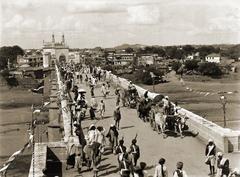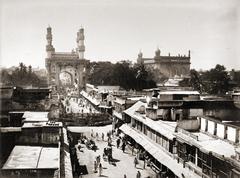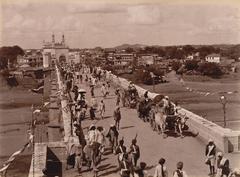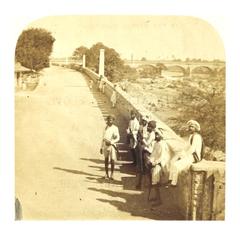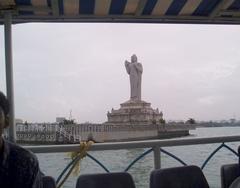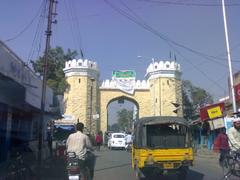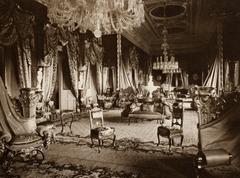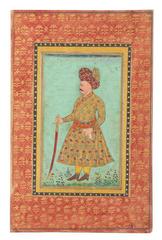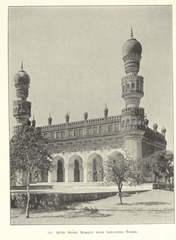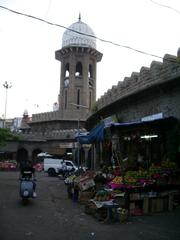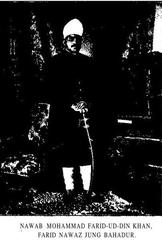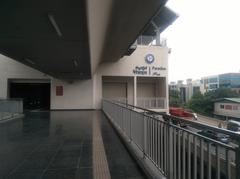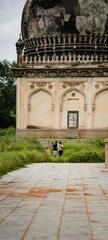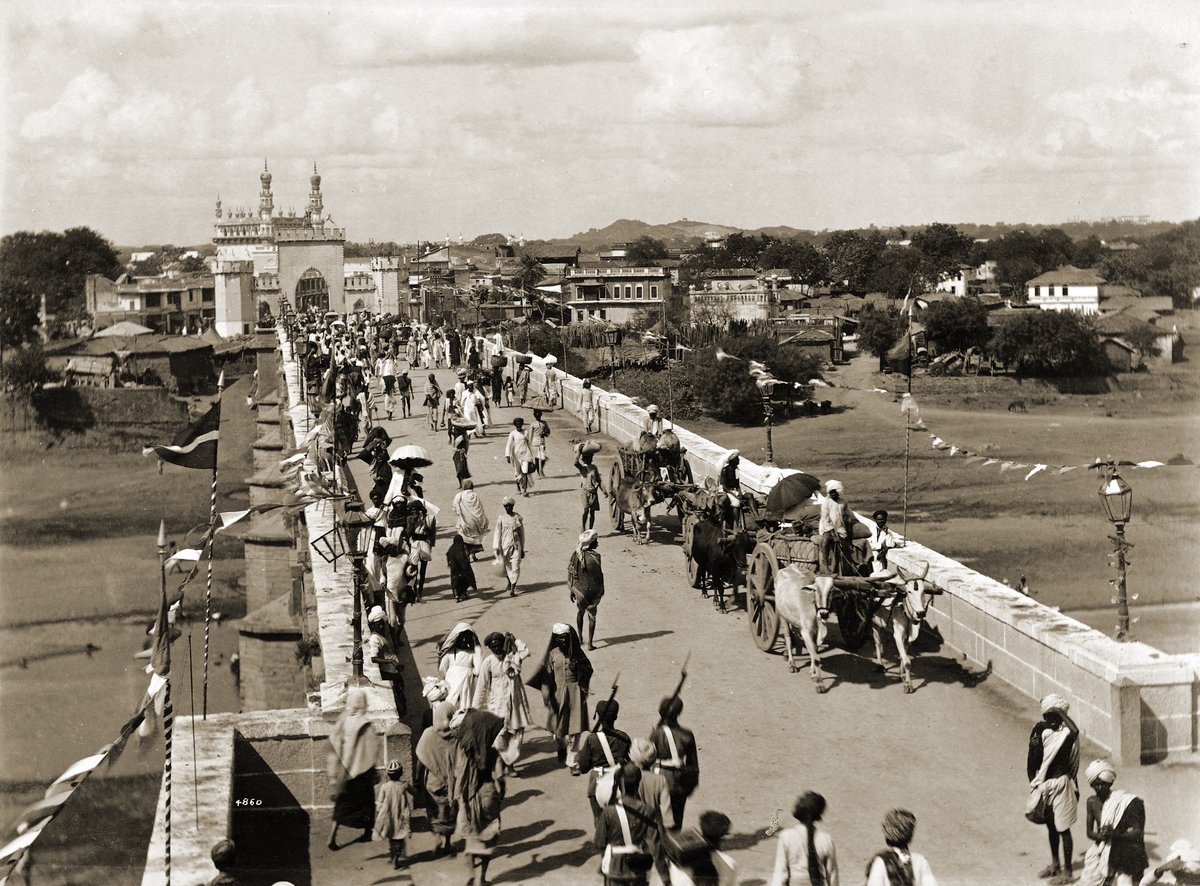
Purana Pul: A Comprehensive Historical, Visitor, and Conservation Guide
Date: 14/06/2025
Introduction
Purana Pul, meaning “Old Bridge,” is Hyderabad’s oldest surviving bridge and a living testament to the city’s layered history, architectural ingenuity, and cultural pluralism. Commissioned in 1578 CE by Sultan Ibrahim Quli Qutb Shah, this Indo-Islamic marvel stretches across the Musi River, connecting the ancient Golconda Fort with what would become Hyderabad’s Old City. The bridge is not only a feat of 16th-century engineering but also a symbol of enduring legends, particularly the famous romance between Muhammad Quli Qutb Shah and Bhagmati. Today, Purana Pul remains a vital part of Hyderabad’s urban life—serving as a pedestrian thoroughfare, bustling market, and heritage attraction, all while surviving the tests of time and nature.
Table of Contents
- Historical Background and Construction
- The Legend of Muhammad Quli Qutb Shah and Bhagmati
- Architectural Features and Urban Role
- Purana Pul Darwaza: The Surviving Gateway
- Engineering and Resilience
- Conservation Challenges and Restoration Efforts
- Visitor Information: Hours, Tickets, and Access
- Modern Usage and Community Life
- Travel Tips and Nearby Attractions
- Photography and Visual Experience
- Frequently Asked Questions (FAQ)
- Conclusion
- References and External Links
Historical Background and Construction
Purana Pul was commissioned by Sultan Ibrahim Quli Qutb Shah in 1578 CE to connect the fortified Golconda with the nascent settlements that would grow into Hyderabad’s Old City. At 600 feet in length and 35 feet in width, with 22 robust arches, the bridge was an engineering marvel of its era (Asian Age). Its strategic position facilitated trade, administrative movement, and military passage between the two sides of the Musi River, predating Hyderabad’s official founding by more than a decade.
The Legend of Muhammad Quli Qutb Shah and Bhagmati
Purana Pul is steeped in a romantic legend that has shaped Hyderabad’s popular imagination. According to local lore, Prince Muhammad Quli Qutb Shah fell in love with Bhagmati, a courtesan from Chichlam village. Defying his father’s opposition, the prince is said to have braved the dangerous Musi River to meet her. Moved by his son’s devotion, Sultan Ibrahim ordered the construction of a permanent bridge, which became known as Purana Pul (Asian Age). After ascending the throne, Quli Qutb Shah reportedly married Bhagmati, who adopted the title Hyder Mahal and inspired the naming of Hyderabad (The Print).
While historians debate the veracity of this tale due to scant direct evidence, it endures as a key element in Hyderabad’s syncretic and romantic identity (The Print).
Architectural Features and Urban Role
Design and Materials
Purana Pul’s design is a hallmark of Qutb Shahi architecture, blending Persian, Deccani, and Islamic influences. The bridge features:
- 22 semi-circular arches for structural stability
- Granite and lime mortar construction for durability
- Low parapet walls for safety
- Flat, broad deck catering to original animal and pedestrian traffic
This robust design allowed Purana Pul to survive centuries of use, flooding, and urban change (Wikiwand).
Urban Significance
Historically, the bridge facilitated the expansion of Hyderabad, linking Golconda’s fortifications with the burgeoning Old City, and fostering commerce and cultural exchange (OneFiveNine). Today, it is surrounded by vibrant markets, religious sites, and heritage neighborhoods.
Purana Pul Darwaza: The Surviving Gateway
At the bridge’s western end stands the Purana Pul Darwaza, one of only two surviving city gates. This Grade-I heritage structure is distinguished by its pointed arches and decorative battlements, exemplifying Qutb Shahi fortification style (Harimohan Paruvu Blog).
Engineering and Resilience
Purana Pul was built with advanced engineering for its time:
- Elevated 54 feet above the riverbed to withstand seasonal floods
- Granite piers and arches for efficient load distribution
- Resilience to Calamities: The bridge survived the catastrophic 1908 Musi flood, which destroyed much of the city’s infrastructure (Academia.edu).
Conservation Challenges and Restoration Efforts
Present Condition
In recent decades, Purana Pul has faced environmental wear, encroachment from vendors, and urban neglect (Siasat). The 2023 floods highlighted vulnerabilities such as cracks, seepage, and vegetation growth.
Restoration Initiatives
The Telangana government, GHMC, and the Department of Archaeology and Museums have launched periodic restoration campaigns. These include removing encroachments, repairing stonework, improving lighting, and creating dedicated spaces for hawkers and pedestrians (Telangana Today; The Hindu). Balancing heritage preservation with local livelihoods remains an ongoing challenge.
Visitor Information: Hours, Tickets, and Access
-
Visiting Hours: Daily from 6:00 AM to 8:00 PM
-
Entry Fee: No ticket required; entry is free
-
How to Reach:
- By Metro: Nearest station is MGBS (Mahatma Gandhi Bus Station), about 5 km away
- By Bus: High Court bus stop is closest
- By Rail: Afzalgunj MMTS station is nearby
- By Road: Easily accessible by taxi, auto-rickshaw, or local bus
-
Accessibility: The bridge is pedestrian-friendly, but surfaces may be uneven. Visitors with mobility issues should use caution.
Modern Usage and Community Life
Today, Purana Pul doubles as a lively market, with fruit and vegetable vendors lining its deck (Telangana Today). This bustling scene provides an authentic glimpse of Hyderabad’s grassroots culture. The site is also a focal point for heritage walks and occasional cultural events like “Lovers’ Day,” celebrating its romantic legacy (Deccan Chronicle).
Travel Tips and Nearby Attractions
-
Best Time to Visit: Early morning or late afternoon for pleasant weather and optimal photography
-
What to Wear: Comfortable clothes and shoes; head coverings for visiting nearby mosques
-
Nearby Sites:
- Charminar
- Golconda Fort
- Chowmahalla Palace
- Laad Bazaar
- Mian Mishk Masjid
- Dabeerpura Gate
-
Refreshments and Facilities: Nearby markets offer food and public restrooms; there are no dedicated facilities on the bridge itself.
Photography and Visual Experience
Purana Pul’s arches create striking patterns of light and shadow, especially at sunrise and sunset. Capture the bridge’s architectural details, bustling market life, and surrounding heritage sites for memorable photographs. For virtual or interactive experiences, refer to official tourism websites and heritage blogs.
Frequently Asked Questions (FAQ)
Q: What are Purana Pul’s visiting hours?
A: Daily from 6:00 AM to 8:00 PM.
Q: Is there an entry fee?
A: No, entry is free.
Q: How do I get there?
A: Accessible by metro (MGBS), bus (High Court stop), MMTS (Afzalgunj), taxi, and auto-rickshaw.
Q: Are guided tours available?
A: Many local tour operators include Purana Pul in heritage walks of the Old City.
Q: Is it accessible for differently-abled visitors?
A: The surfaces can be uneven; caution is advised for those with mobility challenges.
Q: Are there restrooms and refreshments?
A: Nearby markets have these facilities.
Conclusion
Purana Pul stands as an enduring emblem of Hyderabad’s rich heritage, architectural ingenuity, and vibrant community spirit. From its 16th-century origins and legendary love story to its current role as a bustling market and heritage attraction, the bridge offers a unique window into the past and present of Hyderabad. Ongoing conservation efforts, combined with local and tourist engagement, promise to preserve Purana Pul’s legacy for future generations. Plan your visit to walk its historic arches, explore the Old City, and experience the living culture of Hyderabad firsthand.
Visuals and Interactive Resources
Alt text: Purana Pul Bridge showing historic arches over the Musi River in Hyderabad.
Alt text: Close-up of Puranapul Darwaza gateway showing traditional stonework.
Explore More
Stay Connected
Download the Audiala app for curated Hyderabad tours and updates on heritage sites.
Follow us on social media for news and travel tips:
References and External Links
- Purana Pul: Visiting Hyderabad’s Historic Old Bridge and Its Timeless Legends, 2025, Asian Age
- Purana Pul: Visiting Hours, Tickets, and Historical Guide to Hyderabad’s Oldest Bridge, 2025, Wikiwand
- Purana Pul Hyderabad: Visiting Hours, Tickets, History, and Cultural Significance, 2024, KP IAS Academy
- Purana Pul Hyderabad: Visiting Hours, Tickets, History, Conservation & Visitor Guide, 2025, Telangana Today
- Purana Pul bastion to stand in full glory, 2017, The Hindu
- The Print, Harimohan Paruvu Blog, Academia.edu, OneFiveNine, New Indian Express, Siasat, The News Minute, Travel + Leisure Asia, Indian Eagle, Deccan Chronicle, Scroll.in, The Hans India, Timeles.in, Inditales
